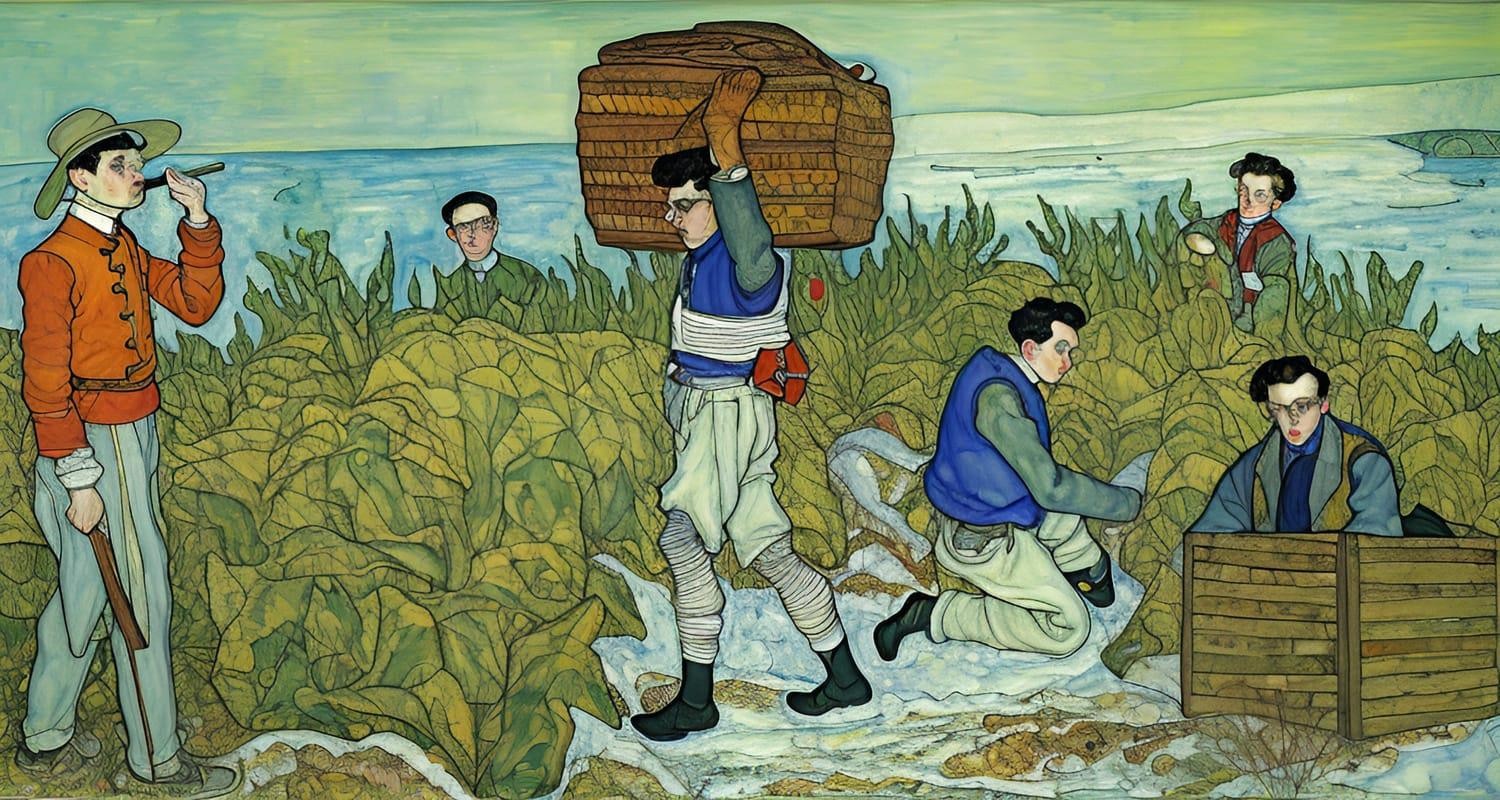The Mughal invasions and British rule in India had significant impacts on the cultural landscape of the Indian subcontinent, including aspects related to religion, language, customs and traditions. While both periods introduced elements that influenced Indian culture, they also contributed to challenges in preserving and perpetuating indigenous traditions. Here’s how they affected the people’s connection to their culture:
- Mughal Invasions:
The Mughal invasions had a damaging impact on Hinduism. It includes the destruction of temples, forced conversions and discriminatory policies. Numerous Hindu temples were demolished during periods of conflict, leading to the loss of sacred sites and artifacts. Some Mughal rulers mandated conversions to Islam, degrading religious freedom and causing resentment among Hindus.
Discriminatory measures like the imposition of jizya tax and restrictions on Hindu cultural practices, further marginalized Hindu communities. Social disruption arose due to communities facing displacement and economic hardship. Additionally, the suppression of Hindu cultural expressions hindered the preservation of cultural heritage.
The centralization of power under Mughal rule diminished the autonomy of Hindu kingdoms, changing established governance frameworks. Long-standing religious tensions between Hindus and Muslims in the Indian subcontinent were also exacerbated by Mughal policies.
Overall, the Mughal invasions left a legacy of hardship and cruelty for Hinduism, impacting its religious, cultural and social fabric.
- British Rule:
The British introduced modern education systems that prioritized English as the medium of instruction. This led to a shift away from traditional Indian knowledge systems and languages, eroding indigenous educational practices and contributing to the decline of vernacular languages. The Indian Gurukul system was replaced with the Convent schools and children were raised to become teens and adults who had lost all connections with their roots.
British colonial policies often supported Christian missionary activities, leading to conversions and the establishment of Christian educational institutions. This, coupled with the denigration of indigenous religions as “primitive” or “superstitious,” undermined confidence in native cultural practices.
British colonialism also involved the appropriation and commodification of Indian cultural artefacts, practices and symbols. This process of cultural appropriation, coupled with Orientalist stereotypes perpetuated by colonial narratives, contributed to the marginalization and eroticization of Indian culture.
While the Mughal invasions and British rule left indelible marks on Indian culture, including the introduction of new ideas, art forms and administrative structures, they also posed challenges to the preservation and transmission of indigenous traditions. The impact of these historical periods on people’s connection to their culture varies, with some communities embracing aspects of external influences, while others struggle with their identity and heritage because of the effects of colonialism.
Resurgence of Hinduism
In recent years, there has been a remarkable resurgence of youth interest and participation in Hinduism, marking a significant cultural shift in the modern world. This resurgence is not merely a return to tradition but a dynamic reimagining of ancient wisdom in contemporary contexts. From vibrant festivals to digital forums, young Hindus are actively engaging with their faith, revitalizing age-old practices and embracing their rich cultural heritage.
One of the driving forces behind this resurgence is the desire among young Hindus to reconnect with their cultural roots and heritage. In an increasingly globalized and interconnected world, many young people are seeking a sense of identity and belonging and Hinduism provides a rich tapestry of traditions, rituals and philosophies that resonate with them. Many young Hindus are rediscovering the profound wisdom embedded in Hindu scriptures such as the Vedas, Upanishads and Bhagavad Gita. From yog and meditation to Ayurveda and Vedanta, the teachings of Hinduism offer timeless wisdom that is relevant to modern life.
Moreover, the accessibility of information through the internet and social media has played a crucial role in sparking interest and curiosity about Hinduism among youth. Online platforms provide a space for dialogue, discussion and exploration of Hindu philosophy, History and spirituality.
YouTube podcasts by Channels like RealHit, Ranveer Allahbadia, Fit Tuber, Maithili Thakur, Astro Arun Pandit, Bhajan Marg, Jaya Kishori and many more introduce the viewers to spiritual gurus like Sh. Indresh Upadhyay, Rasraj Ji Maharaj and Sh. Pundrik Goswami. The YouTube channel ‘Fit Tuber’ has introduced them to the teachings of Ayurveda through their informative and entertaining videos. Maithili Thakur, a young singer from Bihar, has gained widespread recognition for her soulful renditions of Bhajans, Maithili, Bhojpuri and other regional folk songs. Young Hindus are leveraging these digital tools to connect with like-minded individuals, share experiences and learn from spiritual gurus and scholars, transcending geographical boundaries in the pursuit of knowledge and wisdom.
The lockdown imposed in response to the COVID-19 pandemic has had a profound impact on various aspects of society, including religious practices and beliefs among the youth, especially in Hinduism. While the lockdown initially disrupted traditional forms of religious gatherings and rituals, it also catalyzed a surge in digital engagement and introspection, leading to a unique effect on the resurgence of Hinduism among the youth.
With physical gatherings restricted, young Hindus turned to digital platforms to connect with their religious community, access spiritual teachings and participate in virtual ceremonies and satsangs (spiritual discourses). Online platforms such as YouTube, social media groups and live-streamed events became essential tools for maintaining religious engagement and fostering a sense of belonging during the lockdown.
The lockdown provided an opportunity for many young Hindus to delve deeper into their spiritual practices and explore the philosophical and spiritual aspects of Hinduism. With more free time at their disposal, some engaged in meditation, yog and scriptural study, seeking solace and guidance amid uncertainty. For some youth, the lockdown created an opportunity to reconnect with their families and participate in household religious rituals and traditions. With hectic schedules and modern distractions put on hold, many young Hindus found themselves participating in daily prayers, performing puja (worship) and celebrating festivals with their families, fostering a deeper appreciation for their cultural and religious heritage.
The lockdown also spurred a sense of social responsibility and activism among young Hindus, inspiring them to leverage their resources and networks to help those in need. Many youth-led initiatives emerged to provide relief to vulnerable communities, distribute food and essential supplies and support frontline workers, embodying the values of seva (selfless service) and compassion inherent in Hindu teachings. With travel restrictions and limited social activities, some young Hindus turned their focus inward, seeking to preserve and pass on their cultural traditions to future generations. Activities such as learning traditional art forms, cooking traditional dishes and studying regional languages gained popularity, contributing to the preservation and revitalization of Hindu cultural heritage.
Different organizations, working in this interest, have also gained contributed to this resurgence of Hinduism. One of these organizations is The Global Hindu Heritage Foundation (GHHF). GHHF and its initiatives, such as Bala Sanskar Kendras, have also played a significant role in contributing to the resurgence of youth interest in Hinduism. Here are some effects of GHHF’s efforts:
- Cultural Education and Awareness: Bala Sanskar Kendras provides a platform for imparting cultural and spiritual education to children from a young age. By teaching them about Hindu scriptures, traditions, values and practices, these centers instill a sense of pride and identity in Hindu youth, fostering a deeper connection to their cultural heritage. Through moral stories, teachings and interactive sessions, Bala Sanskar Kendras promote values such as compassion, respect, integrity and self- discipline among the youth. By instilling these ethical principles, GHHF encourages young Hindus to lead virtuous lives following their religious
- Community Engagement and Networking: Bala Sanskar Kendras serve as community hubs where young Hindus can connect with peers who share similar cultural backgrounds and beliefs. This fosters a sense of belonging and brotherhood among the youth, providing them with a supportive environment to explore and deepen their understanding of GHHF’s initiatives empower young Hindus to become future leaders and ambassadors of their faith. By providing opportunities for leadership roles, public speaking and community service, Bala Sanskar Kendras nurtures the leadership skills and confidence of youth, equipping them to advocate for Hindu causes and contribute positively to society.
- Preservation of Hindu culture: Bala Sanskar Kendras contribute to the revival and preservation of Hindu culture by promoting traditional Hindu practices, rituals, festivals and arts. Through activities like music, dance, story-telling and celebrations, these centers ensure that the rich cultural heritage of Hinduism is passed down to future GHHF’s efforts, including initiatives like Bala Sanskar Kendras, have been instrumental in nurturing a sense of pride, identity and commitment to Hinduism among the youth. By providing educational, spiritual and community- building opportunities, these initiatives contribute to the resurgence of interest in Hinduism among young people, ensuring that the legacy of Hindu culture and values continues to thrive in the modern world.
The resurgence of youth in Hinduism is also evident in the revival of traditional practices and rituals. Across India and communities worldwide, young Hindus are actively participating in religious ceremonies, festivals and cultural events, infusing them with a newfound enthusiasm and energy. Whether it’s celebrating Diwali, performing puja or attending spiritual retreats, the younger generation is embracing their religious heritage with pride and reverence.
Furthermore, the dynamic nature of Hinduism itself lends itself to reinterpretation and adaptation to contemporary realities. Young Hindus are embracing this fluidity and using it as a catalyst for social and environmental activism, humanitarian initiatives and community service projects. Inspired by the principles of dharma (duty), seva (selfless service) and ahimsa (non-violence), they are actively contributing to the betterment of society and the world at large. These initiatives serve as a powerful expression of Hindu ideals in action.
In conclusion, the resurgence of youth in Hinduism represents a vibrant and dynamic movement that is reshaping the religious landscape of the modern world. By embracing tradition while embracing modernity, young Hindus are forging a path that honours the ancient wisdom of their faith while adapting it to the challenges and opportunities of the 21st century. As custodians of Hinduism’s rich cultural heritage, the youth are set up to lead the way forward, inspiring future generations to embrace the values of tolerance, compassion and spiritual growth.
Content Manager, Beats Capsule, New Delhi.
Ms. Akanksha is a writer on Dharmic and Patriotic subjects. She is originally from Yamunanagar, Haryana and is now in Patiala, Punjab. She is a Post-Graduate from Kurukshetra University, Kurukshetra. Apart from writing, she has a deep interest in music and Yoga. Ms. Akanksha has also been involved in teaching and has a deep connection with sharing her knowledge with others. Having a passion for writing, she pens articles on topics related to Indian history and cultural heritage.
Disclaimer: The opinions expressed within this article are the personal opinions of the author. World Hindu News is not responsible for the accuracy, completeness, suitability, or validity of any information on this article. All information is provided on an as-is basis. The information, facts or opinions appearing in the article do not reflect the views of World Hindu News and World Hindu News does not assume any responsibility or liability for the same.








